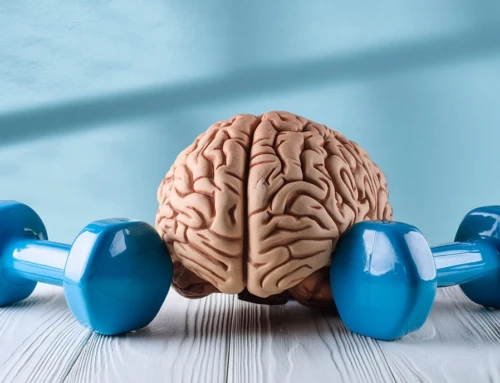You’ve probably heard the expression many times before. Friends whom you haven’t seen in a while will say it with a pleasant look on their faces. On good days, you may even think it to yourself as you’re staring at your reflection in a mirror. “Boy, are you aging well!”
But what does that mean, exactly? To “age well”?
Aging well is not limited just to one’s physical appearance; it also involves taking care of your brain in addition to your body. Overall health as you age depends on 3 key factors: your genes, your environment, and your lifestyle. We can’t control the genes we inherited and our environment isn’t always easy to control – so our best bet is to focus on maintaining a healthy lifestyle for a healthy body and brain. Mental and physical aging is inevitable, but there are steps you can take to ensure that you are taking care of yourself for years to come:
- Manage Your Health. Recommended health screenings will help you manage conditions like high blood pressure, diabetes, etc. Some medications or combinations can affect the way your brain works so talk to your healthcare providers about possible side effects and communicate all medication changes. Quit smoking and be aware that alcohol may affect older adults differently than younger individuals.
- Adopt a Healthful Diet. Eat lots of fresh fruits and vegetables, whole grains, lean meats, fish and poultry. Monitor your portion sizes and drink adequate amounts of water.
- Start Moving! If you haven’t yet started an exercise regimen, there’s no better time than now! Even a simple 30 minutes of walking is beneficial. Physical activity may reduce health risks, prevent falls, and improve connections among brain cells. Enroll in programs that can help you learn to exercise or move safely, but be sure to consult your healthcare provider before doing so.
- Exercise Your Intellect. Mentally stimulating activities, like chess or sudoku, are good for your brain. You can also read or write, or take an education class or learn a new skill, language or hobby. Your brain needs just as much of a workout as your body, so don’t neglect it!
- Increase Social Interactions. Get involved in social activities around your community. Senior Centers, the YMCA, clubs at your church or synagogue, hobby groups, etc. are good places to start. Social activities are linked to reduced risk for some health issues, including dementia. And people who engage in meaningful activities, like volunteering, say they feel healthier and happier.
- Get Enough Sleep. Most people find it hard to maintain a consistent bedtime routine, or they suffer from insomnia or other sleep disorders. To put yourself in the mood for sleep on a regular basis, avoid napping, stimulants and heavy meals before bed, or other activities that could interfere with sleep quality. Ensure that the sleep environment is relaxing and that you associate your bed with sleep only. If you have issues with sleep apnea (short pauses in breathing while sleeping), consult your healthcare provider.
Creating a healthy lifestyle that you can sustain is important for healthy aging. Start simple with a single, manageable goal; for example, take a 15 minute walk around the block a few times a week or add a serving of vegetables to one meal a day. As time goes on, a healthy lifestyle will become an easy – and normal – part of your daily routine.





